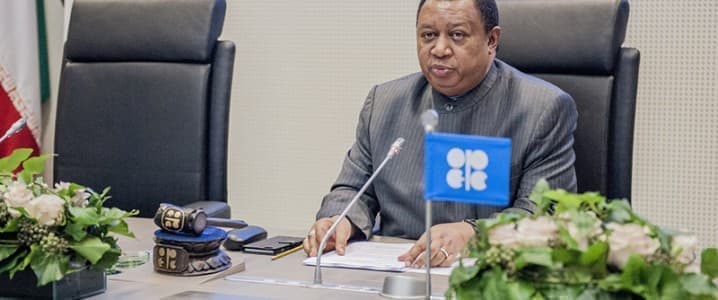Secretary-General Mohammad Barkindo is urging OPEC members to lobby with the United States that a NOPEC bill against the organization would harm American interests, Reuters reported on Friday, quoting a letter Barkindo had written to the oil producers.
The United States has tried several times in the past to pass antitrust laws targeting OPEC’s market-fixing policies.
This week, the U.S. House Judiciary Committee passed the NOPEC bill, officially referred to as the No Oil Producing and Exporting Cartels (NOPEC) Act of 2021.
House Judiciary Committee Chairman Jerrold Nadler (D-NY) said before the vote at the committee that the NOPEC Act would be “expressly authorizing the Justice Department to pursue antitrust enforcement actions against OPEC members, should it choose to do so, and by ensuring that American courts have jurisdiction to hear such cases.”
OPEC is now encouraging its producers to reinforce diplomacy with the U.S. and stress that if the bill becomes law, it would hurt both U.S. interests and U.S. oil producers.
“It is essential that member countries reinforce diplomatic bilateral contacts with government officials in the U.S. ... and explain the disadvantages for the U.S. should the NOPEC bill become law,” Barkindo wrote in the letter Reuters had seen.
According to Barkindo, the disadvantages of a NOPEC bill for the United States could be “weakening the immunity principle at a global level, putting at risk U.S. interests overseas, and the protection for their personnel and assets.” In addition, a NOPEC law would raise the risk of more volatile oil prices, which directly hit U.S. oil producers, Barkindo’s letter says.
The U.S. Chamber of Commerce does not support a NOPEC Act, its Chief Policy Officer Neil Bradley said in a letter to the Judiciary Committee Chairman Nadler last week.
Although NOPEC “is intended to be limited to restraint of trade in oil, natural gas or petroleum products, the Committee should be wary of the precedent it could create. Once sovereign immunity has been eliminated for one action of a state or its agents, it can be eliminated for all state actions and the actions of agents of the state. Under reciprocal legal regimes the United States and its agents throughout the world could be tried before foreign courts – perhaps including the military – for any activity that the foreign state wishes to make an offense,” Bradley said.
By Tsvetana Paraskova for Oilprice.com
More Top Reads From Oilprice.com:
- The Best Is Yet To Come For The World’s Hottest Oil Play
- Why Iran’s Return To Oil Markets Isn’t A Major Threat
- Oil And Gas Bankruptcies Jump Despite Rise In Crude Prices



















If it becomes a law and the United States tries to sue OPEC or any of its members, the organization could stop all its oil exports to the US. NOPEC has only jurisdiction in the United States but no extraterritorial jurisdiction under international law.
If, however, the United States persists with mounting law suits against OPEC or its members, then they should retaliate by withdrawing their investments and funds in the US and even threaten to replace the petrodollar with the petro-yuan in their oil transactions. That would be the biggest ever retaliation against the US.
Furthermore, OPEC isn’t a cartel. A cartel is defined as an association of manufacturers and suppliers whose goal is to increase their collective profits by means of price fixing, limiting supply, preventing competition or other restrictive practices. Antitrust laws attempt to deter or forbid cartels.
How could OPEC be a cartel when it was founded as a counterweight against the previous “Seven Sisters” cartel of multinational oil companies which dominated every aspect of global oil through price fixing, limiting supplies and suppressing competition for the sole purpose of maximizing its profits.The main purpose behind the founding of OPEC was to give producers more control over their own oil.
OPEC has never once tried to fix a specific price nor has ever been able to achieve this goal. For instance, OPEC was not able to prevent prices from falling in the 1980s even after it adopted the production quota system in 1982. Moreover, OPEC was neither able to temper oil prices in 2008 when prices rocketed to $147 a barrel nor was it able to stop the 2014 oil price crash.
When it comes to limiting oil supply, a true cartel like the “Seven Sisters” was able to do exactly that because it was virtually in control of global oil resources. OPEC has never been in such a situation. It only accounts for 42.6% of the global oil market with the rest of the oil-producing nations of the world accounting for 57.4%.The United States and Russia both account for 12% each.
Furthermore, only OPEC stood between the pandemic and a collapse of both the global oil market and the global oil industry. Its management of the market during the pandemic earned it the respect of the world and praise from even US shale oil producers.
Dr Mamdouh G Salameh
International Oil Economist
Visiting Professor of Energy Economics at ESCP Europe Business School, London